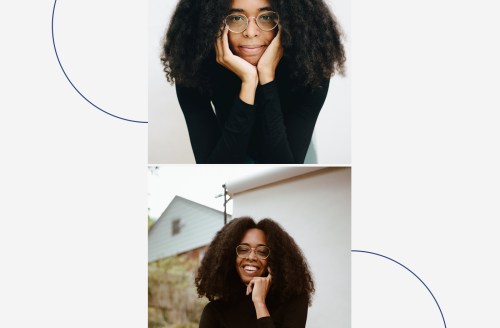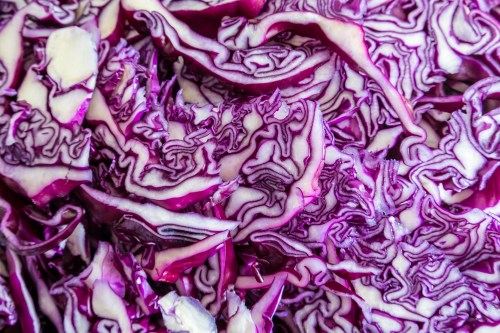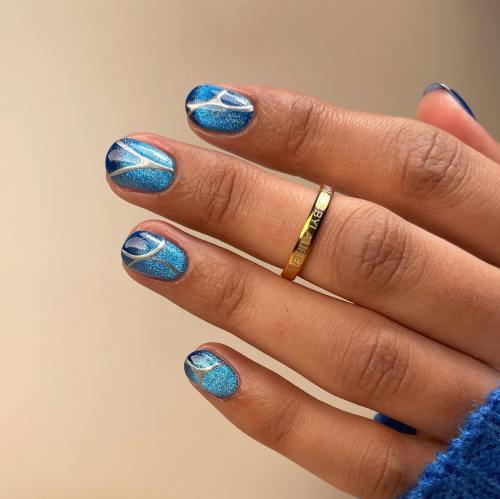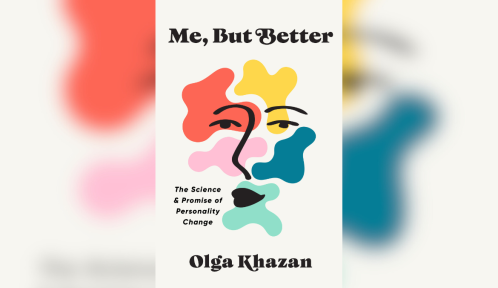An estimated 157 million Americans live with some form of chronic disease—aka a physical or mental illness that lasts for longer than a year—in the year 2020. That translates to a whopping six out of every 10 American adults, per data from the Centers for Disease Control and Prevention. Yet because of existing stigma surrounding health conditions, people who live with a chronic disease rarely get the chance to openly discuss their experiences, or even to define themselves outside of their illness. But a new podcast, launched earlier in 2020, seeks to combat that stigma and broaden the conversation around chronic and invisible conditions.
Experts in This Article
director of Podcasts at Well+Good
Producer and writer Taylor Camille is the creative force behind Beyond Our Cells, a podcast highlighting the different experiences of people with chronic health conditions. Camille has sickle cell anemia—a genetic blood disease that causes red blood cells to weaken—so she knows first-hand what it’s like to have an illness that isn’t necessarily outward-facing.
Here, in a conversation with Well+Good, Camille—who is also Well+Good’s new senior video producer—talks more about her inspiration and why she’s so committed to spotlighting health conditions that often go overlooked.
Well+Good: You officially launched the podcast during the pandemic. What inspired your mission and the timing?
Taylor Camille: I myself have sickle cell anemia, and I’ve been fortunate that it hasn’t hugely affected my life—extremely fortunate. But I also know what it’s like to have a chronic health condition that isn’t exactly outward-facing. Many people don’t know I have it, but it does affect how I move through the world.
Another source of inspiration was a letter my late Uncle Chip wrote to my mom. He died when he was only 20. His death is what led much of my mom’s side of the family to get tested for sickle cell, leading to the discovery of the sickle cell trait in our family. In the letter, he urged my mom to face things with “a warm heart and cool mind” and I sign off each episode with that sentiment.
What else inspired [the podcast] was my dad being diagnosed with prostate cancer. He was someone who was very prideful and didn’t want to talk about it. I wanted to record an episode with him discussing his trepidations and how he wasn’t letting his diagnosis hold him back. So we recorded the very first episode in April 2019, but I didn’t post it right then. Unfortunately, I lost my dad to prostate cancer in December 2019. I kept holding on to that episode and then, three months later, the pandemic hit. People starting talking about their health in a bigger way, which pushed me forward.
Then came the Black Lives Matter movement. A major part of my mission is giving a platform for people of color with chronic health conditions because they are not often heard from. So that’s when I decided to officially launch it.
By providing a platform to people of color, and specifically Black people, you’re also shining a light on disparities that exist in health care as well.
TC: Yes. There are so many statistics about doctors not listening to Black patients or thinking that they experience less pain [than white people]. Each episode focuses on a different chronic health condition that isn’t necessarily outward facing, and then I also research to see the conditions where Black people tend to be at greater risk or worse favored. Bringing the data in is another way to highlight the racial disparities in health care.
I decided to focus the first two seasons solely on Black people from a variety of backgrounds. I just think it’s really important to listen to their stories. Some of the guests include dancer Jerron Herman, who has cerebral palsy [a group of disorders that affects movement, balance, and posture], actor Caleb Ashton, who is HIV-positive, and photographer and entrepreneur Maya McHenry, who has endometriosis [where endometrial tissue grows outside of the uterus].
On your website, you say the podcast is aimed at “creating a more peaceful understanding of our conditions.” That phrase—”peaceful understanding”—really stood out to me because so often chronic health conditions are thought of as the opposite of that.
TC: When you look at health conditions in the media, they’re often described using negative words. The phrases that are often used are “battling” or “combating.” And often people are solely defined by their health condition, too. But that is just one small part of who someone is. What I mean by the phrase “peaceful understanding” is [helping people realize] their condition is something they can embrace and be at peace with. It doesn’t have to be a battle.
I wanted to provide a way for people to talk about this. …You may not know the girl who lived in your dorm has endometriosis. These conversations are meant to be educational to everyone, not just people with chronic health conditions. But the episodes are positive, too. Each person featured talks about how they’re still able to live full lives and how they are finding peace in whatever they’re facing.
Is there anything else you want people to know?
TC: I just want people to know that whatever you’re going through, you are not alone. There’s a lot going on right now in the world: find your community. The more we talk and connect with each other, that’s where we find our strength. Finding communities of people who are going through what you go through shows that you are not alone; you’re never alone.
Some other great community resources or healthy health conversations with a focus on people of color are Henry Health, Health In Her Hue, We Are Illmatic, and Ethel’s Club. And feel free to reach out to me, too! I’m always looking for more people to feature on the podcast.
This conversation has been edited and condensed for clarity.
Oh hi! You look like someone who loves free workouts, discounts for cult-fave wellness brands, and exclusive Well+Good content. Sign up for Well+, our online community of wellness insiders, and unlock your rewards instantly.
Sign Up for Our Daily Newsletter
Get all the latest in wellness, trends, food, fitness, beauty, and more delivered right to your inbox.
Got it, you've been added to our email list.











